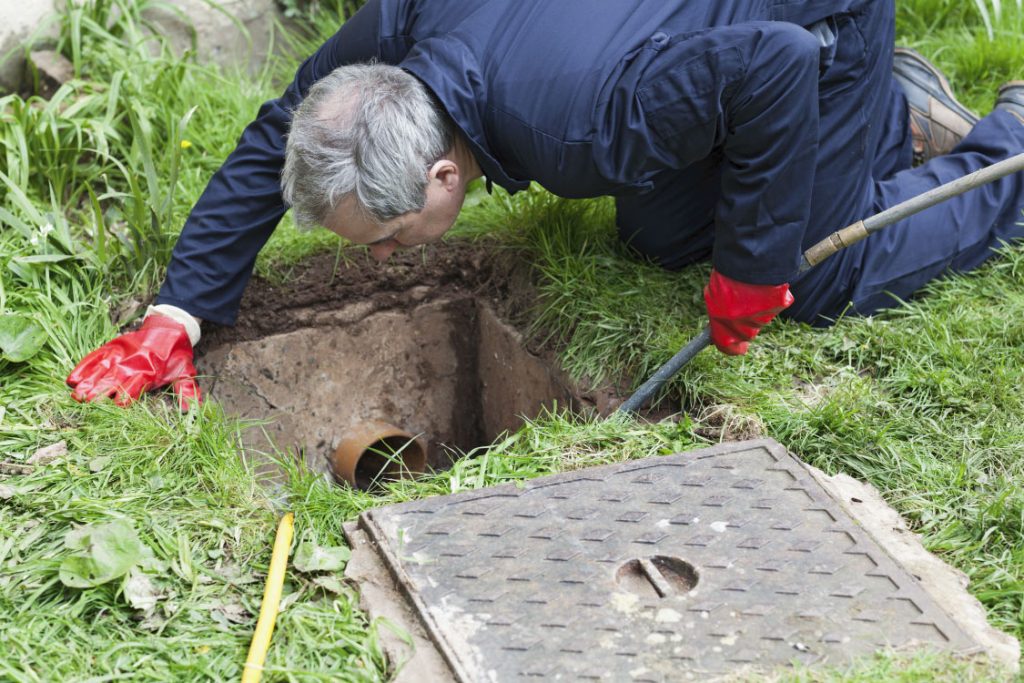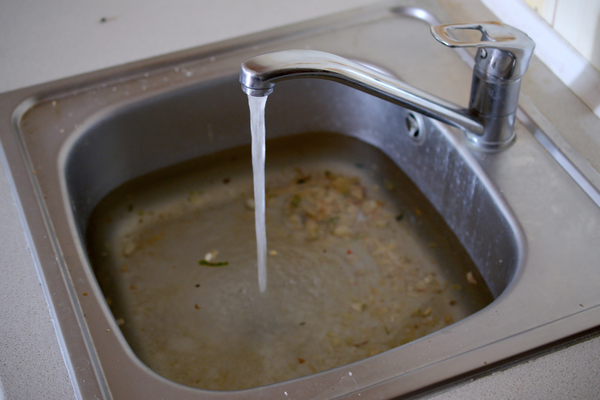Strategies for Addressing a Blocked Drain Before Hiring Expert Plumbers
Strategies for Addressing a Blocked Drain Before Hiring Expert Plumbers
Blog Article
What are your insights and beliefs on Tips for Dealing with Clogged Drains and Sewer Lines?

Introduction
Handling a blocked drainpipe can be a frustrating experience, interfering with everyday activities and possibly creating damages to your residential property. However, prior to connecting to pipes experts, there are steps you can require to deal with the problem yourself. In this guide, we'll explore do it yourself services and preventive measures to tackle a blocked drain efficiently.
Determining the Problem
The primary step in addressing an obstructed drainpipe is identifying the indicators. Slow water drainage, gurgling audios, foul odors originating from drains pipes, or water support up are common indications of a blocked drain. Determining these indicators early can help prevent better issues.
Picking the Right Plumbing Solution
When picking a plumbing solution, consider elements such as experience, licensing, and client testimonials. Select a credible plumbing technician with a track record of quality handiwork and clear prices techniques.
Expense Considerations
The expense of expert drainpipe cleaning services can differ depending upon the seriousness of the clog and the plumbing professional's rates. Request quotes from numerous carriers and ask about any type of surcharges to ensure openness and prevent shocks.
Safety and security Measures
When attempting do it yourself drain cleaning, focus on safety and security. Put on protective gloves and glasses to prevent contact with unsafe chemicals or microorganisms. Never mix various drain cleansing items, as this can produce dangerous fumes.
Instance Studies
Real-life examples show the performance of DIY options and the significance of prompt specialist treatment in fixing drain blockages.
Usual Causes of Obstructed Drainpipes
Recognizing the aspects that add to drain clogs is important for efficient resolution. Common perpetrators consist of hair, soap scum, grease, food debris, and international items like hygienic items or paper towels. Tree roots invading underground pipes can also trigger significant blockages.
Do it yourself Solutions
For minor clogs, a number of do it yourself solutions can be reliable. Pouring boiling thin down the drain can help liquify grease and particles. Baking soda and vinegar or a mixture of salt and cooking soda can function as natural cleaners. Making use of a plunger or plumbing serpent to displace blockages is another alternative.
Tools and Equipment
Having the right devices available can make do it yourself drainpipe cleaning a lot more efficient. A plunger is a flexible device for removing obstructions in sinks, commodes, and showers. A plumbing serpent or auger can reach deeper obstructions, while drain cleansing chemicals can be used carefully for stubborn obstructions.
Preventive Measures
To avoid future clogs, adopting safety nets is essential. Mount drainpipe guards or strainers to capture hair and debris prior to they get in the pipes. Regularly flush drains pipes with warm water to dissolve grease accumulation, and stay clear of getting rid of oil or solid waste down the drain.
When to Call an Expert
While do it yourself solutions can deal with small obstructions, particular indications indicate the need for professional assistance. Persistent obstructions, foul odors despite cleansing efforts, or numerous drains pipes backing up all at once are warnings that require expert treatment.
Verdict
By adhering to the tips described in this guide, you can successfully tackle obstructed drains and avoid future plumbing issues. Whether going with do it yourself options or seeking professional support, punctual activity is essential to maintaining a healthy and balanced pipes system and preserving the honesty of your home.
How to Clear a Clogged Drain Yourself (And When to Call In the Professionals)
What Can Clog a Drain
Dirt Skin flakes Hair Grease Soap scum Food Offset pipes Tree roots Small objects Mineral buildup DIY Tricks to Unclog a Drain
You can fix this! Once you have identified the source of the clog (or have a vague idea), you can try one or a combination of these fixes in order to clear your plumbing.
Wire Hanger or Snake
Untangle and clear out hair from a drainpipe with a homemade snake. Use a straightened-out wire hanger with a 90-degree angle hook to locate the clog and drag out any unwanted material.
Remember not to push the clog further down to where the wire hanger cannot reach! If you need to follow up with a plunger, give it a try. Your efforts might be more successful after it’s been wire-snaked.
If you want to get fancy and don’t have a wire hanger to spare, head to the store and pick up a hand-operated drain snake. You can get one for $10-$30. It may save you the hassle, and provide additional length to reach deep into the clogged pipe.
Plunger
A cup plunger has a suction cup attached to a wooden handle. The rubber creates a seal around the drain, and increases the pressure force of the plunger.
Plunge for 30-second increments to loosen the clog. This may need to be repeated over the course of 15-20 minutes. Once plunged, run the water to flush the remaining material out of the drain.
Remember– never use a plunger if you have used a chemical drain cleaner. These chemicals can splash up from the force of the plunger and cause serious injury or burns.
Boiling Water
Hot water can sometimes break up materials into a flushable amount. Dirt, grease, and soap buildup requires heat in order to unstick from surfaces.
Take your kitchen kettle and heat your water to a boil. Once it reaches a rolling boil, pour it directly down the drain into the blockage. Carefully follow with plunging, if necessary.
Don’t worry if this takes more than one try! It can often take multiple kettles and repeated plunging in order to clear a particularly stubborn clog.
Chemical Drain Cleaner
As a last resort, pick up a bottle of chemical drain cleaner. Drain-cleaning chemicals are potent, and not very good for the environment.
You may need to wear protective eyewear in gloves before handling your bottle of chemical drain cleaner. Follow the instructions printed on the bottle, and flush with water as soon as the instructions allow. Do not follow with plunging.
Baking Soda and Vinegar
As a safer alternative to chemical drain cleaner, baking soda and vinegar can create a chemical reaction that clears tough clogs.
Combine one cup of cleaning vinegar with one cup of boiling water, and set aside. Once you have done this, pour half a cup of baking soda down the drain. Give the baking thirty seconds to settle and cover a large portion of the problem drain.
Following the baking soda, pour down your vinegar and hot water solution. Once the vinegar and baking soda combine, the mixture will bubble and fix. Let this reaction fizzle in the drain for about an hour.
After an hour, follow with a kettle’s worth of hot water. The heat and liquid should flush out any remaining material.
When to Call a Plumber
If your DIY attempts haven’t cleared your clog drain, it’s time to call in a professional. It’s not worth losing access to your kitchen sink or high-traffic bathroom. A clog in a vital area can keep you from the things you’d rather be doing, and derail your routine.
Anytime a clog is causing water to spread is a time to call in a plumbing service. What starts out as a little bit of water can quickly grow into serious, expensive water damage.
Additionally, a serious clog can result in burst pipes or serious leaks. Make sure you know when to take it seriously!
https://myguysnow.com/how-to-clear-a-clogged-drain-yourself-and-when-to-call-in-the-professionals/

As a person who reads on Tips for Dealing with Clogged Drains and Sewer Lines, I assumed sharing that piece of content was a good idea. Do you know anybody else who is intrigued by the subject? Do not hesitate to promote it. I take joy in reading our article about What I learned from trying to deal with a clogged drain.
Click Here To Find Out More Report this page